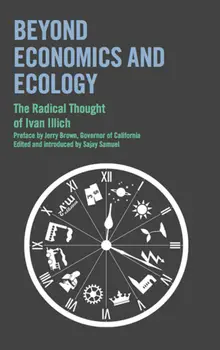Each of the four essays reprinted here was written for a specific occasion and together comprise only the smallest selection from a larger corpus questioning commodity and energy-intensive economies. The essays are presented thematically instead of chronologically to offer a better view of the sweep of Illich's argument. In the first two, "War against Subsistence" and "Shadow Work," Illich reveals both the ruins on which the economy is built and the blindness of economics which cannot but fail to see it. The second two essays, "Energy and Equity" and "The Social Construction of Energy," unearth the nineteenth century invention and subsequent consequences of 'energy' thought of as the unseen cause of all 'work' whether done by steam engines, humans, or trees. The science of ecology relies on this assumption and, as Illich explained, unwittingly fuels the addiction to energy. The close dance of energy consumption and economic growth is characteristic of not just industrially geared societies. After all, energy consumption steadily increases even in so-called post-industrial societies, fueling the fortunes of Google and Apple no less than Wal-Mart.
Beyond Economics and Ecology: The Radical Thought of Ivan Illich
Commencez ce livre dès aujourd’hui pour 0 €
- Accédez à tous les livres de l'app pendant la période d'essai
- Sans engagement, annulez à tout moment
Auteur(e) :
Langue :
anglais
Format :

Tools for Conviviality

Shadow Work

ABC: The Alphabetizaton of the Popular Mind

Limits to Medicine: Medical Nemesis: The Expropriation of Health

The Right to Useful Unemployment

Celebration of Awareness: A Call for Institutional Revolution

Gender

In the Mirror of the Past: Lectures and Addresses 1978-1990

H20 and the Waters of Forgetfulness

Energy and Equity

Deschooling Society
